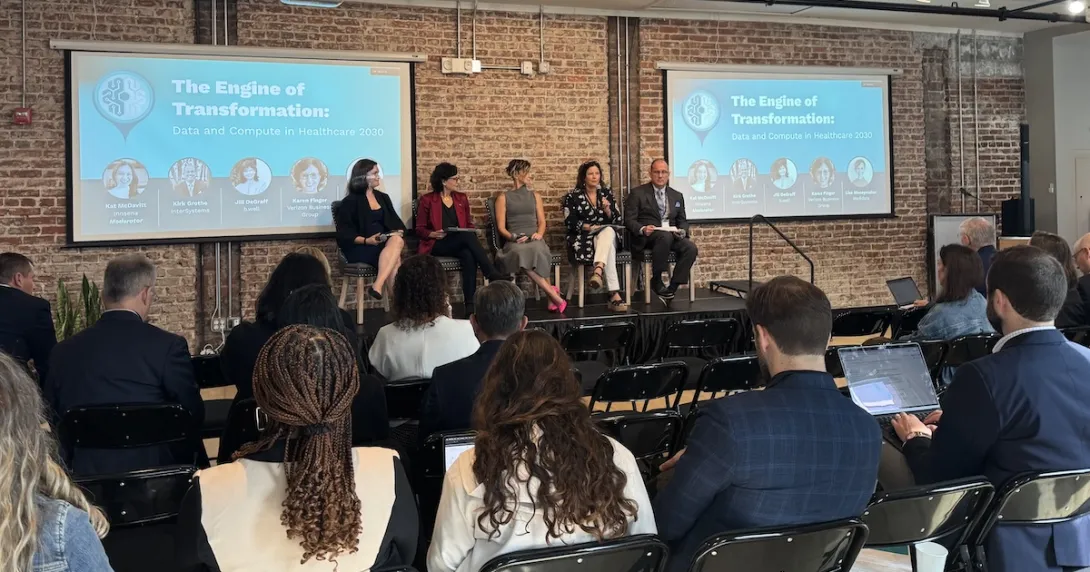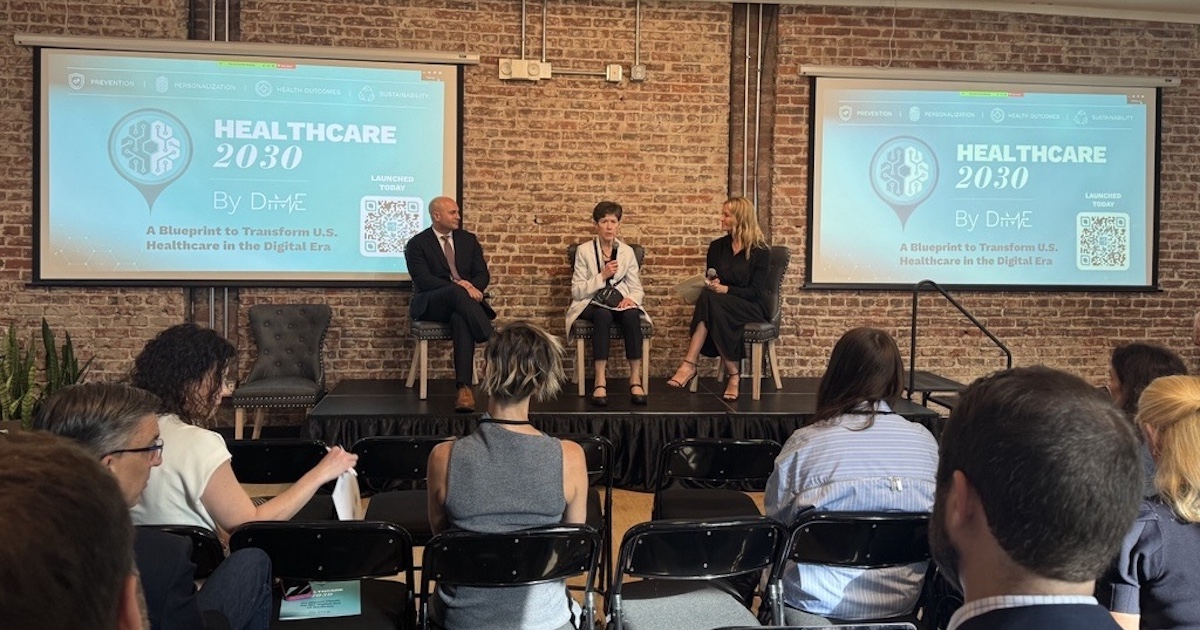
Kat McDavitt of Innsena, Karen Finger of Verizon Business Group, Lisa Moneymaker of Medidata, Jill DeGraff of b.well and Kirk Grothe of InterSystems
Photo: Jessica Hagen/MobiHealthNews
WASHINGTON, D.C. – During the Digital Medicine Society (DiMe) Healthcare 2030 event here on Monday, panelists discussed how AI enables transformation in healthcare by allowing more through data analysis and computing. Still, consensus was mixed on whether standards for interoperability can be created.
The entire industry needs to take a strategic view on how it will participate in bringing interoperability into healthcare, panelists said.
"The reality is we don't have a lot of data flow," moderator Kat McDavitt, president of Innsena, said.
Establishing a solid foundation for transformation and ensuring data flows sustainably require infrastructure and standards that are informed by content and context.
"Companies need to take a strategic view of their own tech stack and create a data model," said Jill DeGraff, senior vice president of privacy, regulatory affairs and compliance at b.well.
Consensus needs to be built as an industry, and although FHIR has helped, technology enablement needs to be brought up to speed, DeGraff said.
McDavitt noted that, in her experience, discussions with others have revealed that many companies and individuals do not utilize FHIR, but her fellow panelists emphasized the importance of these resource standards.
"I think [FHIR] is still critical. It still plays a huge part because a lot of what we see in the lack of FHIR adoption is actually change management," Lisa Moneymaker, chief strategy officer at Medidata, said.
"No matter what technology we use going forward, it is going to build upon that same idea of permissioning and change management and how we got into the idea that we can share anything."
Monkeymaker said the industry should not relax on the idea that sharing is good and that we want to have interoperability. FHIR is a great step toward that, she said.
Still, Moneymaker and Kirk Grothe, DPA and head of public sector strategy at InterSystems, challenged the idea that there will be one standard.
"I think it's a long time off before we have a single transmission protocol that everybody is going to use," Grothe said.
"I think there are market-based differences in the way that people transmit information that are probably going to continue among market segments."
Grothe said if you look outside of the U.S., different thinking exists around medical research, and that will continue to be the process.
"I think a control model is too little, too late. We have to think of interoperability as what are a collection of standards that we can process in a meaningful way with a set of standards that allows us to maintain reliability and a sustainable model."
Grothe emphasized that sustainability encompasses environmental sustainability, as significant overhead is required to process those transactions.
All panelists agreed that the CMS Interoperability Framework announced earlier this year is a good step forward.
"If we all agree to behave a little differently together, we're going to be able to shake out some of the nonsense that may take place in the industry, some of those other one issues that we've been discussing, and if we're able to do that, we're probably going to get closer," Grothe said.

